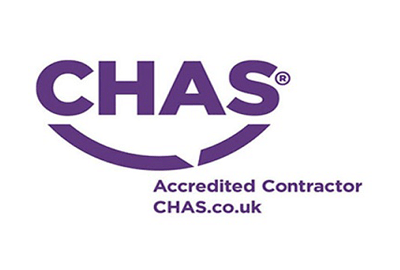Overview:
Hampshire Highways required a new purpose-built recycling centre to create new road materials, focusing on road surfaces and pavements. Three goals were integral to the project being successful. These were the need to maximise the use of sustainable, low carbon materials and deliver a net reduction in the use of virgin aggregates, remove the need to dispose of tar-bound materials, and significantly reduce the number of miles travelled for material supply. Doing so would help Hampshire County Council lower its carbon emission targets.
Challenge:
In December 2020, the UK government set a Net Zero 2050 target and an intermediate goal of a 68 percent reduction by 2030. Local authorities in the UK are required to take action to reduce greenhouse gas emissions, both directly and through their partnership and influencing roles. Local authorities expel a significant expenditure of CO2 emissions, waste, and energy usage on road materials. Many councils are evaluating how changing the supply, creation, and recycling of such materials can contribute to these lofty carbon reduction goals.
Solution:
Milestone Infrastructure formed a partnership between OCL, Hampshire Highways, and Hampshire County Council to transform the Micheldever site and deliver the solution.
Firstly, the site itself needed to be recycled, having previously been an asphalt plant until the late 1990s. As a result, the depot was fully refurbished and brought up to modern environmental standards. For example, to meet Environment Agency (EA) requirements, a new sealed drainage system was also required. The system can hold all the water for a one in a 100-year storm event, with an additional 40 percent capacity to cope with future climate change impacts.
A significant amount of material that had previously been stored at the site was also recycled and used during the reconstruction of the plant.
OCL then installed the latest technologically advanced plant and equipment to produce the recycled products.
The new facility reduces waste construction costs by recycling tar-bound material which would otherwise require specialist disposal. The recycled material is laid cold, which means specialist insulated lorries are not needed to collect and deliver the material, and there is no waste from unused material.
The depot is equipped with onsite mixing facilities and a weighbridge so users can tip-off materials and take them away with easy access from the A303.
Results:
Hampshire Highways can now bring back in to use material taken up from Hampshire roads during repairs, processing it cleanly and quietly, and then re-using it elsewhere on the local road network. The site enables Hampshire to dispose of asphalt waste containing coal tar, supply recycled aggregate, and cold lay asphalt and HBM on a supply or supply and lay basis.
With over 5,500 miles of roads and footways in Hampshire, there is a significant opportunity to reduce the carbon footprint across the county to help achieve its climate change goals. For example, the cold recycled road surface delivered by OCL uses a fifth of the energy of traditional materials and saves 50 percent of CO2 emissions.
Within 12 months of the site opening in May 2021, the Micheldever facility aiming to deliver a net reduction in CO2 of around 67,500kg. Hampshire Highways will achieve this by reducing the use of virgin aggregates, replacing some warm and hot mix traditional asphalts with cold lay materials, and reducing the total miles travelled for material supply.
The site has room for expansion, and discussions are ongoing about future innovations and capabilities that the partnership can deliver.
“The investment in this recycling hub will put Hampshire County Council and its partners at the forefront of sustainable highway construction. We are using materials recovered from the highway as part of our surfacing and road repair programme and binding them with new cements and asphalt to prepare them for re-use in the carriageway. This enables us to use the aggregates from materials that are already in the local road network and eliminates the need to quarry or excavate virgin product from the countryside, all of which has a hugely positive impact on carbon reduction.”
Matthew Riches, Operations Director for Milestone.
“Bringing back in to use material taken up from Hampshire roads during repairs, processing it cleanly and quietly, and then re-using it elsewhere on the local road network is a fantastic step forward for us – both in maintaining the 5,500 miles of roads we’re responsible for across Hampshire, and in reducing our carbon footprint, helping us to achieve our climate change goals. I can also foresee the facility’s potential to enable and encourage more sustainable construction across the wider highway maintenance and civil engineering sectors.”
Councillor Rob Humby, Deputy Leader and Executive Lead Member for Economy, Transport and the Environment at Hampshire County Council.






